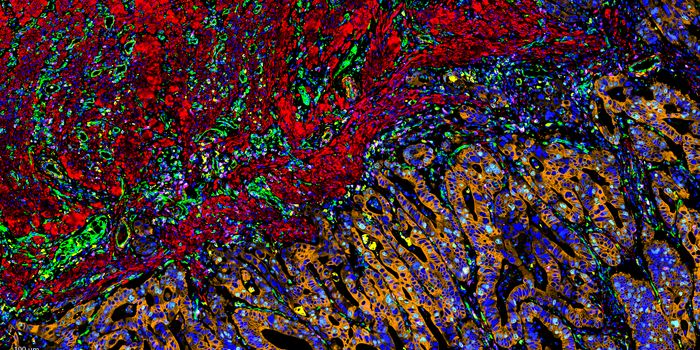Ovarian Cancer Drug Trial Delivers Astonishing Results
A trial designed to test the safety of an ovarian cancer drug actually showed some positively stunning results in shrinking the tumor in women. Half of the women in the trial showed reduced tumor size - a result which caught researchers by surprise, and which has prompted the swift move towards bigger clinical trials.
The drug is known in the study as ONX-0801, and will be known as BTG945 in later stages. Its mechanism of action for entering the cell is similar to that of folic acid. Once inside the cancer cells, the drug blocks a molecule called thymidylate synthase, which induces lethal damage to the cells’ DNA structure. The drug is expected to be effective against ovarian cancer because this type of cancer has an abnormally high level of folic acid receptors.
ONX-0801 was given to a small sample of women, just 15 participants, to test for safety in a Phase I trial, carried out by researchers at the Institute of Cancer Research, London.
During the course of the trial, researchers found an unusually high response rate in the participants. Half of the women, seven out of 15 ovarian cancer patients, showed significant reduction in their tumor size. And if the participants were categorized by presence of the folic acid receptor, the results are even more striking as it shows seven out of 10 participants responded well to the drug. Of note, some of the women had advanced ovarian cancer which did not respond to standard treatments.
"The results we have seen in this trial are very promising. It is rare to see such clear evidence of reproducible responses in these early stages of drug development,” said Dr. Udai Banerji, the study’s lead investigator.
"ONX-0801 is the latest in a long line of precision cancer medicines to have been discovered here at the ICR - 20 since 2005 alone. The drug works in a particularly clever way by mimicking the effects of folic acid to hit cancer cells selectively while leaving healthy tissue alone,” said Professor Paul Workman, Chief Executive of the ICR. "It looks a highly promising treatment with the potential to have huge benefits for women with ovarian cancer, and I'm very keen to see it progress to later-stage trials."
Alongside the tumor shrinkage, the team found that the drug did not carry side effects typical of chemotherapy treatments, such as hair loss, nerve damage, and infections. Researchers think this is due to the drug’s specificity for folic acid receptors.
“The beauty of this particular drug is that it is targeted to the cancer cell. This means there are fewer side-effects, making it a kinder treatment for ovarian cancer patients,” said Dr. Banerji. “It's early days of course, but I'm keen to see this treatment assessed in later-stage clinical trials as soon as possible. We have also developed tests to pick out the women who are likely to respond to the drug, making the treatment potentially more cost-effective, and ensuring other patients can receive alternative treatment."
Ovarian cancers have one of the highest mortality rates, ranking fifth in cancer deaths among women. Of the 22,000 new estimated cases of ovarian cancer this year, only 10-15 percent of patients will be successfully treated. Unfortunately, in the large percent of remaining patients, the cancer doesn’t respond to treatment, or will inevitably return with a vengeance.









